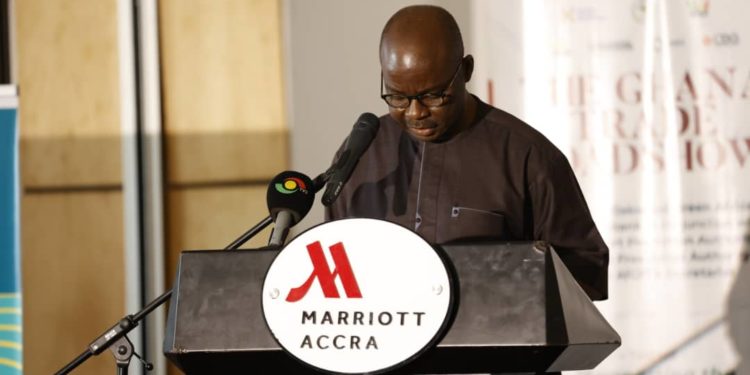PAPSS to reduce dollar demand in Ghana, other African countries; strengthen African currencies – Dr Addison
Governor of the Central Bank, Dr Ernest Addison, has averred the introduction of the Pan-African Payment and Settlement System (PAPSS) in the implementation of the African Continental Free Trade Area (AfCFTA) will help reduce the continent’s demand for the dollar to trade.
With the PAPSS platform built to allow businesses on the continent engage in financial transactions in their respective local currencies, Dr Addison notes demand for dollar is expected to significantly reduce, impacting interest and exchange rates thereby strengthening African currencies in the process.
Strong demand for the greenback for trade purpose by African businesses contributes to the weakening and depreciation of the continent’s local currencies.
In Ghana for instance, strong demand for the anchor currency (dollar) has led to a more than 18% depreciation of the value of the cedi.
Delivering a speech at the Ghana Trade Roadshow on Friday, July 1, 2022, Dr Addison noted financial institutions in Ghana and around the continent have a crucial role as both facilitators and integrators in the implementation of the PAPSS.
Speaking further at the event and particularly about Ghana’s financial sector, the Governor remarked the sector can play a pivotal role in leveraging AfCFTA to boost the country’s socio-economic development by investing in infrastructure and financial technology to participate in funding trade transactions presented through the AfCFTA platform as well as supporting regional trade transactions.
According to the Governor, Ghana’s banking sector is currently well-capitalised with adequate liquidity to support transactions generated through increased trade.
Adding that, “The Bank of Ghana has put in place robust regulatory and supervisory frameworks to support in-country and cross-border trade transactions. There are also policies and safeguards to reduce Anti-Money Laundering and Combating the Financing of Terrorism (AML-CFT) activities and create a robust and a sound financial system to support regional trade. Ghana’s financial sector can therefore be instrumental in meeting the funding needs of businesses in the country to trade under the AfCFTA umbrella.”
“In response to the opportunities that the AFFTCA presents, commercial banks are required to strengthen all risk management systems and scale-up capacity in trade finance to support the private sector. Additionally, banks and non-bank financial institutions are encouraged to increase investments in digitisation platforms as well as cyber-security systems to facilitate safe and secure trade transactions through AfCFTA.
“These institutional developments should complement the PAPSS and MANSA platforms through which Afreximbank will work with local businesses and financial institutions to help facilitate intra-Africa trade,” he stated further.
The AfCFTA is one of the flagship projects of the African Union’s “Agenda 2063: The Africa We Want”, which aims to promote trade among 55 African countries, with a market size of about 1.2 billion people and projected US$450 billion income boost for the continent by 2035.
The main objective of AfCFTA is to create a single market for goods and services and promote the free movement of business persons and investments in Africa. The Agreement seeks to expand intra-African trade through better harmonization and coordination of trade liberalization and facilitation regimes. Trade remains an important driver for economic growth and development in Africa.
Intra-African trade has increased in recent years; nevertheless, Asia and Europe remain the main trade partners of the continent. High dependence on trade in primary goods, high product and market concentration of exports, and weak regional production networks are among the main challenges of trade on the African continent.








